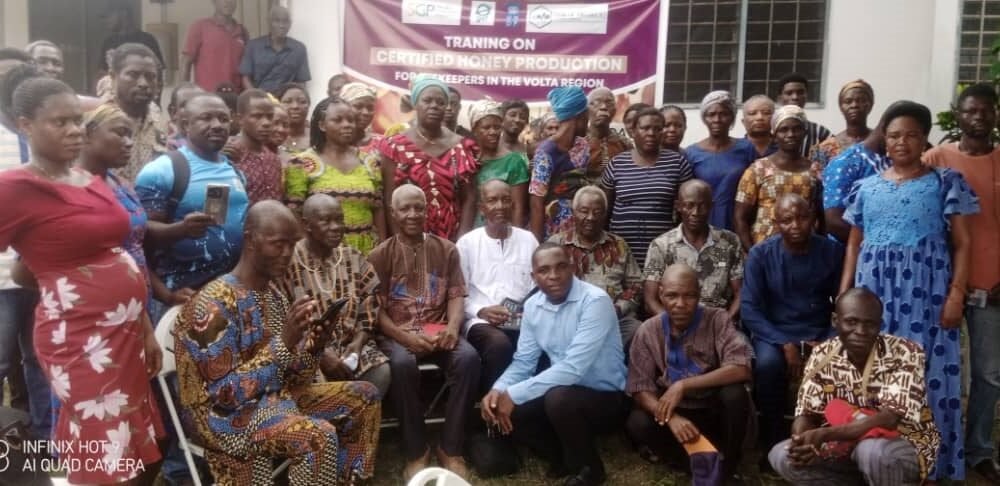News
60 beekeepers trained in Volta, Oti regions

Sixty beekeepers from the Volta and Oti regions have undergone a day’s capacity training in Ho to enhance their skills in improved way of harvesting honey.
The training which was organised by VORAB Project International, a non-governmental organisation with funding from UNDP Global Environment Facility, seeks to school participants on the requisite knowledge on how to use modern equipment to enhance their work.
They were taken through hygienic ways of harvesting honey, guidelines of quality product, packaging and customer care.
Mr Devine Okoe Odonkor, Executive Director of VORAB Project International, noted that the NGO has been part of the beekeeping development effort in the Volta and Oti regions.
Therefore we are desirous of putting our expertise at the disposal of the district assemblies to develop the beekeeping industry as a sustainable nature conservation and sustainable employment unit of the assemblies.
However, degradation of the natural environment due to primary production activities such as farming, sand winning and charcoal production have been alarming.
“We need to take advantage of a lot of benevolence for humanity, pollination for forest and farm crops production bee products for food, medicine for these priceless gifts from bees.
Toured Amaglo, Customer Service Officer of the Forestry Commission in his remarks said we need to promote the establishment of one bee farm per district in the Volta and Oti regions as an integrated socio-economic and natural environment management unit of the assemblies.
He said despite financial challenges within the region, VORAB had demonstrated appreciable efforts in making sure education gets to many more people in the communities.
He advised more youth to be ready to learn beekeeping and apply the various entrepreneurial skills that would be provided.
From Kafui Gati, Ho
Sixty beekeepers from the Volta and Oti regions have undergone a day’s capacity training in Ho to enhance their skills in improved way of harvesting honey.
The training which was organised by VORAB Project International, a non-governmental organisation with funding from UNDP Global Environment Facility, seeks to school participants on the requisite knowledge on how to use modern equipment to enhance their work.
They were taken through hygienic ways of harvesting honey, guidelines of quality product, packaging and customer care.
Mr Devine Okoe Odonkor, Executive Director of VORAB Project International, noted that the NGO has been part of the beekeeping development effort in the Volta and Oti regions.
Therefore we are desirous of putting our expertise at the disposal of the district assemblies to develop the beekeeping industry as a sustainable nature conservation and sustainable employment unit of the assemblies.
However, degradation of the natural environment due to primary production activities such as farming, sand winning and charcoal production have been alarming.
“We need to take advantage of a lot of benevolence for humanity, pollination for forest and farm crops production bee products for food, medicine for these priceless gifts from bees.
Toured Amaglo, Customer Service Officer of the Forestry Commission in his remarks said we need to promote the establishment of one bee farm per district in the Volta and Oti regions as an integrated socio-economic and natural environment management unit of the assemblies.
He said despite financial challenges within the region, VORAB had demonstrated appreciable efforts in making sure education gets to many more people in the communities.
He advised more youth to be ready to learn beekeeping and apply the various entrepreneurial skills that would be provided.
From Kafui Gati, Ho